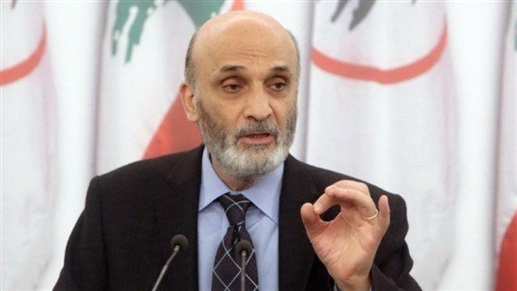The head of the “Lebanese Forces” party, Samir Geagea, stressed that “Lebanon’s situation at the present time is not sound, as a result of the crisis that has been going on for seven years, in light of the confusion and the great financial and economic chaos.”
He pointed out in an interview with the “Turkish Independent” that “our inability to hold presidential elections because of the opposition team disrupting the sessions, when Parliament Speaker Nabih Berri calls for a folkloric session because it is impossible for one of the candidates to obtain two-thirds of the votes from the first round, and unfortunately about 12 failed.”
Despite the crisis in Lebanon it is not possible to hold this election due to the obstruction of the “axis of opposition”, which either wants its candidate elected or disrupt the electoral sessions, and this is an absolutely undemocratic act.
On the anniversary of the Beirut port bombing on August 4, 2020, he said that “there are many tragedies that Lebanon has witnessed during the past ten years, but unfortunately it is difficult to achieve justice for the victims of the explosion at the present time, due to the existing situation,” adding: “We must not forget that In addition to the explosion, there is no longer a picture of the State of Lebanon abroad, and our national currency has collapsed, and all these matters are tragedies that enter every home.
And he added that “the fallen victims of the blast are not only those who lost their lives, but there are also 4 million Lebanese martyrs, and there are 70 billion dollars that have disappeared from public funds, depositors’ funds, central bank funds and banks as a whole, and the list goes on.”
Flawed election system
Lebanon’s presidential election system has come under scrutiny in recent years due to its inherent flaws and the potential for undemocratic outcomes.
The current system, which requires a candidate to secure a two-thirds majority in the first round, often leads to situations where even a candidate with the support of 65 % of the parliament in the first round may fail to secure victory. It is imperative to reconsider this system and explore alternative approaches to ensure a fair and representative electoral process.
In the most recent election the candidate of the opposition , former minister Jihad Azour secured 59 votes of the 128 member parliament in the first round while his opponent the Hezbollah and Amal backed candidate secured 51 votes . At the end of the first round the MPs of Hezbollah and its allies and their candidate walked out of the parliament and declared victory . The speaker who is a very close ally of Hezbollah decided to end the election session. This scenario could have repeated itself if Franjieh was in the lead . The Lebanese election system is therefore to blame
According to analysts the current presidential election system in Lebanon is in dire need of reform. The existing two-thirds majority requirement in the first round, coupled with the potential quorum issues in the second round, has resulted in undemocratic outcomes and a lack of faith in the process. By adopting the “half plus one” system in the first round, Lebanon can move towards a more representative and inclusive electoral process, ensuring that the will of the majority prevails. It is crucial for the Lebanese lawmakers to address these concerns and work towards a fairer presidential election system that upholds the principles of democracy and strengthens public trust in their democratic institutions.
Amending article 49 of the constitution is the key to fair elections
Some politicians are blaming the parliament and have called for new elections to change the parliament but the fact remains that regardless who wins the majority in the parliament no candidate can with two-thirds majority in the first round .
For this reason Speaker Nabih Berri should call for a session to amend Lebanon’s current flawed presidential election system as per article 49 of the constitution
“The “half plus one” system in the first round is currently being used to elect a Speaker and designate the Prime Minister , why should it be any different for the president?, Sami Haddad , a Lebanese analyst told Ya Libnan


Leave a Reply
You must be logged in to post a comment.